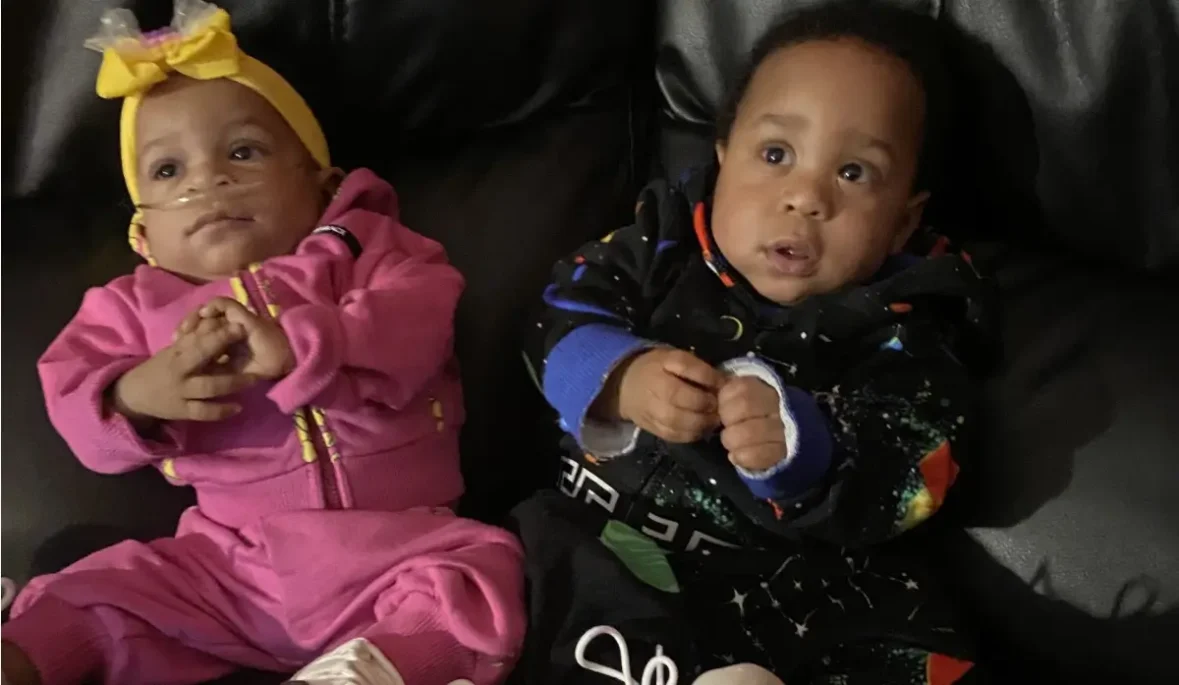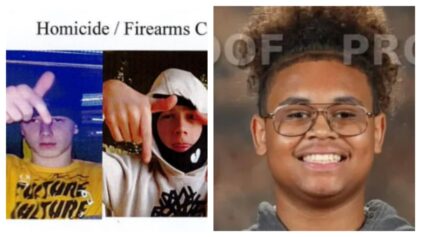A Black Detroit-area couple was temporarily banned from seeing their baby daughter at a local children’s hospital after challenging the medical care she was receiving.
Now, Dorian Halslew wants her 1-year-old daughter, Karter, transferred to an out-of-state medical facility, CBS Detroit reports.
Haslew said she started encountering issues during her pregnancy with Karter and her twin brother, Kayden, last year.

“The whole time I was pregnant, I was bleeding,” Dorian Halslew told CBS.
Her concerns were largely ignored even after being expressed to staff at two hospitals in different areas.
In January 2023, she delivered her babies at the Hutzel Women’s Hospital by emergency C-section. She was 26 weeks pregnant at the time, just a couple of weeks short of her third trimester.
“[Karter] came out at 1 pound, 2 ounces, and [Kayden] came out at 2 pounds,” she said.
The twins were immediately sent to the neonatal intensive care unit and then later transferred to the Children’s Hospital of Michigan, where they were placed on a ventilator.
By May 2023, both twins had been discharged. They were with their family until just after their first birthday this past January, according to the local outlet.
In February, Karter had to be rushed back to the children’s hospital, where she had to be connected to a device that helped pump and oxygenate blood in her lungs and heart.
“We thought that it was only pneumonia,” Halslew told CBS Detroit. “Next thing you know, one of her lungs collapsed, and they were talking about putting her on this life support machine called the ECMO [extracorporeal membrane oxygenation].”
Haslew says one morning, she got a call at 4 a.m. from a staffer who said Karter was “breathing at 40 percent, and they’ve done everything they can do.”
She told the CBS affiliate she rushed down to the hospital, where she found medical staff sleeping. Medical records also showed that Karter had been prescribed fentanyl, but Haslew said she never permitted staffers to administer the drug. Fentanyl is commonly used to prevent and treat severe pain in neonates, according to the National Library of Medicine.
Haslew worked to stay as composed as possible as she voiced her worries and apprehension, but she and her husband were ultimately banned for more than a month from seeing Karter.
“As soon as you say something, or you act like you don’t like something that they’re saying, they’re going to threaten to ban you,” Halslew said.
Haslew said the hospital lifted her ban when Karter’s condition started deteriorating. She met with doctors toward the end of March when Karter started to bounce back.
Karter was diagnosed with Bronchopulmonary Dysplasia (BPD), a breathing disorder in premature infants resulting in the lungs not developing normally. She’s off the ECMO machine but remains on a ventilator.
Right now, Karter isn’t stable enough to be moved, but Haslew wants to transfer her daughter to a hospital in Ohio that specializes in treating BPD once she’s discharged.
Atlanta Black Star contacted the Children’s Hospital of Michigan for comment but did not receive a response by publication time on Thursday morning.
Studies and surveys conducted in recent years have gauged the deep-rooted biases within the U.S. health care system that adversely impact Black patients and contribute to mismanagement in their medical care.
According to the CDC, 30 percent of Black women reported receiving different forms of mistreatment during their maternity care in 2023, including being shouted at, having requests for help ignored, and being threatened with withholding treatment or forced to accept unwanted treatment.
A 2022 report from the National Institutes of Health also noted that Black infants receive unnecessary drug treatment at disproportionately higher rates compared to white infants.


